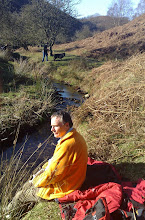The Seven Rs
Following is a list of hints compiled by well known Australian writer Libby Hathorn.
Read
Delight in intricate patterns of sounds and sense that intensify meaning. Read silently for yourself, or read aloud for the sheer pleasure of hearing the music of poetry.You'll see the art of poetry is to compress and crystallize ideas. Have a poetry book by your side (at 821 in any library) and dip into it! I promise you'll find something for every mood.
Respond
Excitement is one of the great aims of poetry writing. We can respond in many ways. It's emotional when we feel things the poet expresses. It's sensual when we respond to the music of words. It's intellectual when we think about the ideas the poet expresses. Readers respond to your poems in the same way. So try to excite their minds with honest feelings and ideas expressed thoughtfully.
Reveal
Poetry reveals all of life to you in a succinct and often surprising way.The play, the fun, the gloom and doom, the pain, the joy, the wit, the shock, the cunning, the sense, the truth! But you must give it time. And give yourself time to be still, to be alone and to dream. You can reveal your own ideas and your special feelings by trying to express them in the shortest, most powerful way, always with the very best words you can find. This might mean editing and re-editing to get it just right!
Recollect
Recall the times when you may have felt deeply. Use these emotions in your writing. Remember to tune into your five senses - taste, touch, smell, sight and hearing - and use these to help express your experiences to others. This will make your work more vivid! Learn bits of poetry that strike a chord in you, by heart. Get acquainted with poetical language and then it will flow more easily for you.
Reconnect
Reconnect to the special language of poetry; the three Rs of rhyme, rhythm and repetition.To rhyme or not? Sometimes blank verse suits the subject and honesty is all. It's true that rhyme does have an obvious appeal so experiment with both. Read poems aloud for rhythm. Sometimes breaking the rhythm can give a good dramatic effect. We chant, clap, stamp because rhythm appeals. Make use of the beat. Repetition causes excitement in poetry. Experiment with repeating words or whole lines in your poems.
Revel
Revel in making new connections. Play with language to make these fresh connections to surprise people. (Use the language of metaphor). 'My life is a journey' may not be true in the literal sense – but it's a pleasing comparison and we have to stretch our imaginations a little to understand it. Sometimes unlikely connections or opposing ones make us notice and really think. For example, Alexander Pope talks of humankind. "Create half to rise, and half to fall'/Great lord of all things, yet a prey to all". Opposites can be exciting.
Rejoice
Read poetry often and write it, most of all, for yourself. Poets don't write poetry to pass exams (or to help you pass exams). They write from an inner need to examine the human heart, to look more closely at human emotions and to express ideas in the best possible way. If you read a lot of poetry, it develops your thinking and imaginative abilities.
You'll write better poetry, and in doing so develop the ability to think more deeply and to communicate your thoughts with ease.
Yours in poetry,
Libby Hathorn

No comments:
Post a Comment